To accompany your Come Follow Me study for February 21-27
In addition to reading these chapters, you may want to:
- See the video Come Follow Me LDS 2022 (Feb 21-27) Genesis 24-27 | Isaac and Rebekah at https://www.youtube.com/watch?v=H8dgwJO0poA
- See the video HD New Media Bible Genesis Project – 09 Rebekah at https://www.youtube.com/watch?v=74q-vqB7bos&list=PLHdHfiwn51u7X7wLjeL_8E2L-11jkm77I&index=9
- See the video HD New Media Bible Genesis Project – 10 Esau and Jacob at https://www.youtube.com/watch?v=W-_4_yRROo8&list=PLHdHfiwn51u7X7wLjeL_8E2L-11jkm77I&index=10
- See the video Thousands of Millions at https://www.youtube.com/watch?v=Jo3bTnVlSas
If you would like a Kahoot game related to this material which you could use for personal study or use with your family or your class, click here: https://create.kahoot.it/share/genesis-24-27/8bb292fe-01c5-4102-b05e-8c695dde23f9
Points to Ponder in Genesis 24-27
1. How many interesting parallels can you find between the life of Isaac and that of his father Abraham?
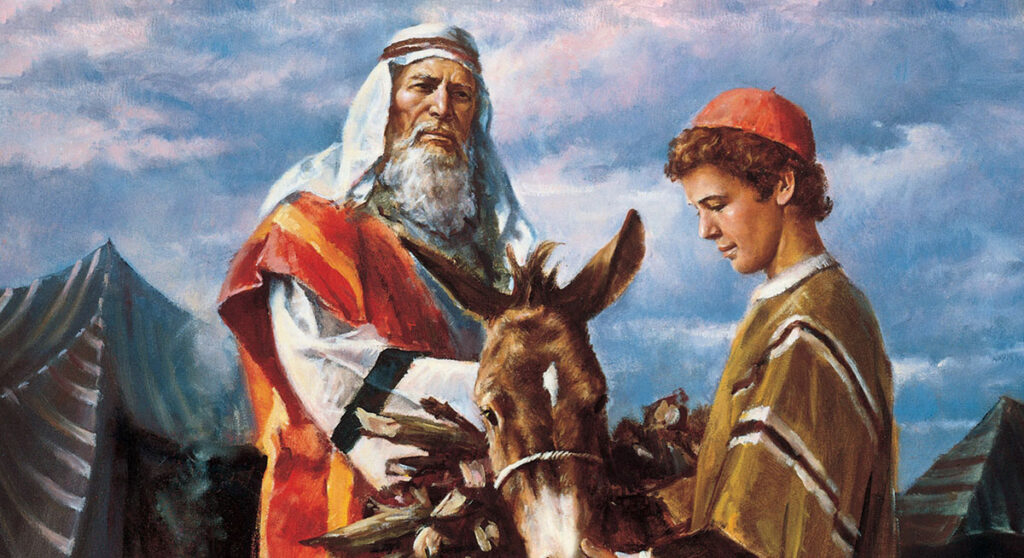
2. What are the most important points to remember, in your opinion, from the story of the marriage of Isaac and Rebekah in Genesis 24?
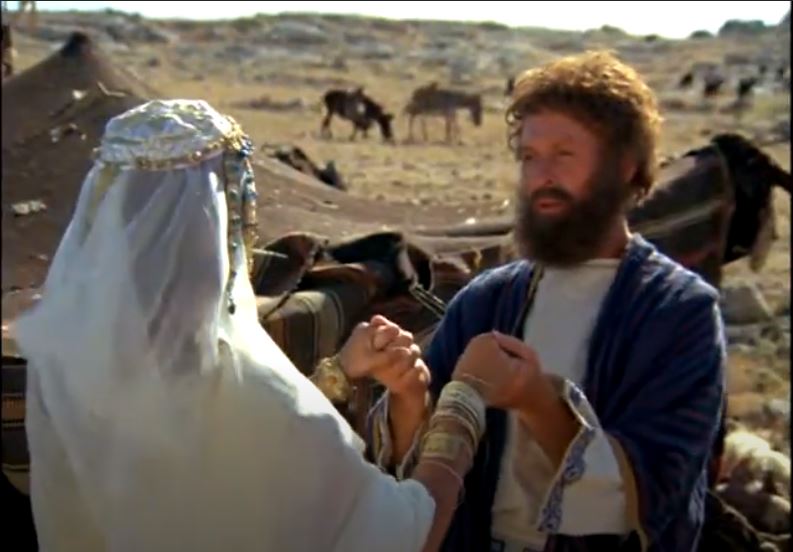
3. Would it be okay for us to ask the Lord for a sign like Abraham’s servant did when he asked the Lord to let the future wife of Isaac be whatever young woman not only offered him water but offered to water his camels as well?
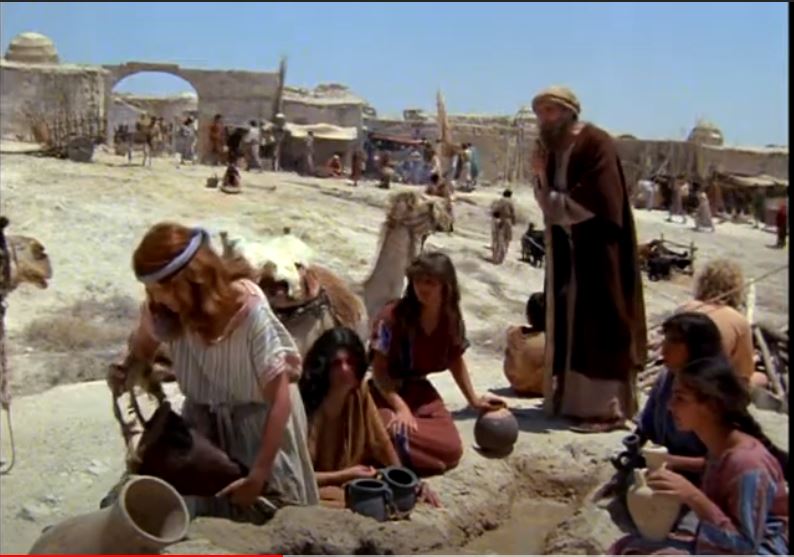
4. What do you consider to be the most important principles in Genesis 25 that Moses would hope we would remember?
5. Why would Rebekah have given her second son the name of “Jacob”? What did the name mean?
6. Why does Moses insult Jacob in Genesis 25:27 by calling him a “plain” man?
7. Just what was the “birthright” which Esau sold to Jacob, and what is the easiest way to find out?
8. Wasn’t it unfair of Jacob to refuse to feed his brother, who was on the verge of starving to death, until he had extorted his birthright from him?
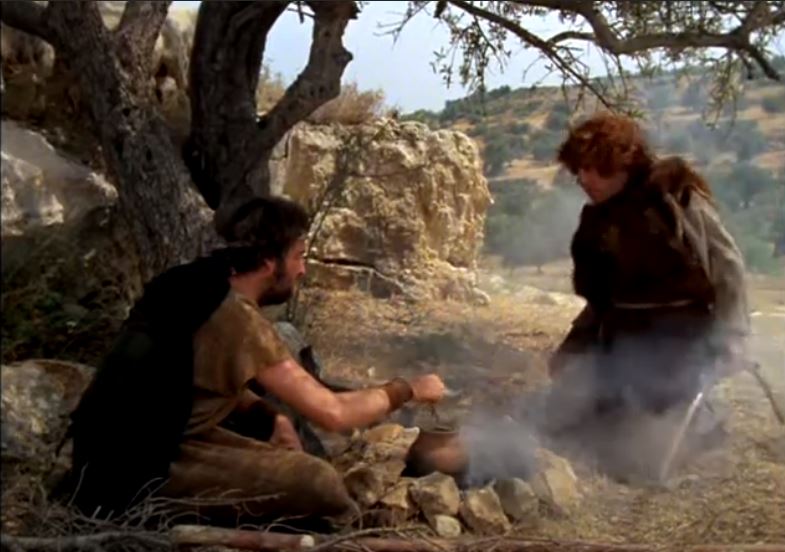
9. What would be a modern equivalent of Esau’s selling his birthright for a mess of pottage?
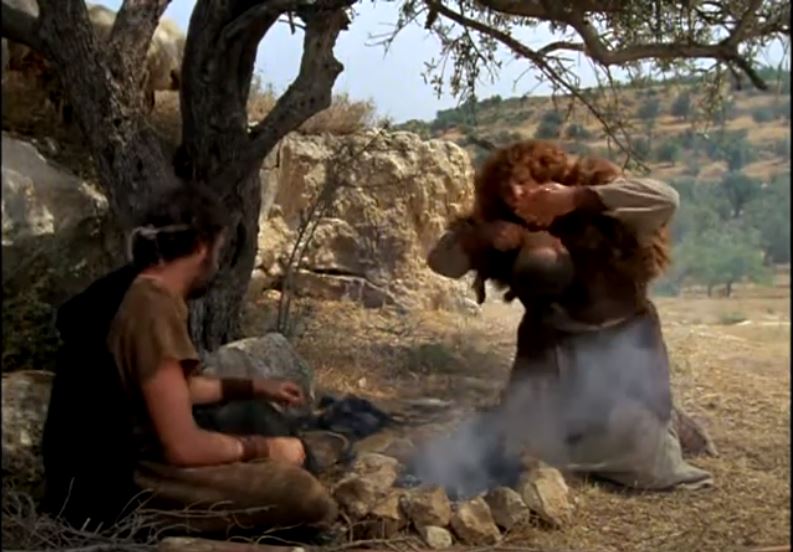
10. What are the most important lessons we get from Genesis 26?
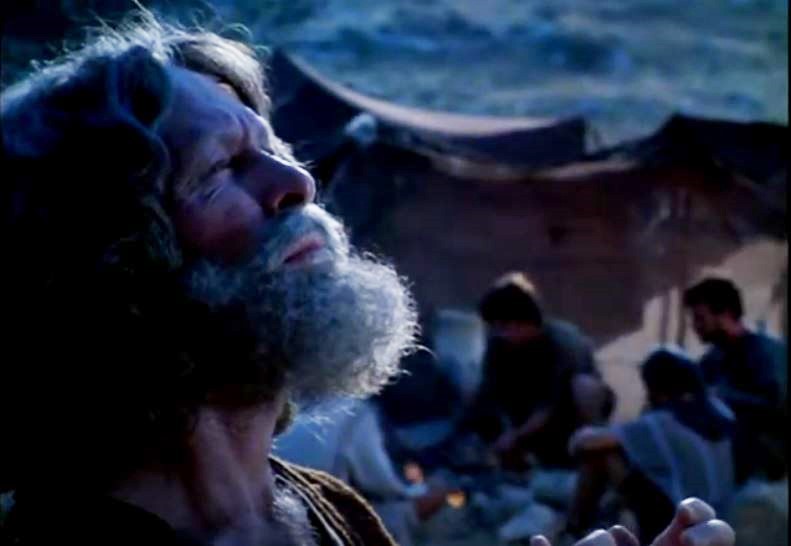
11. Why were Isaac and Rebekah so sorrowful when Esau married? (Genesis 26:34-35.)
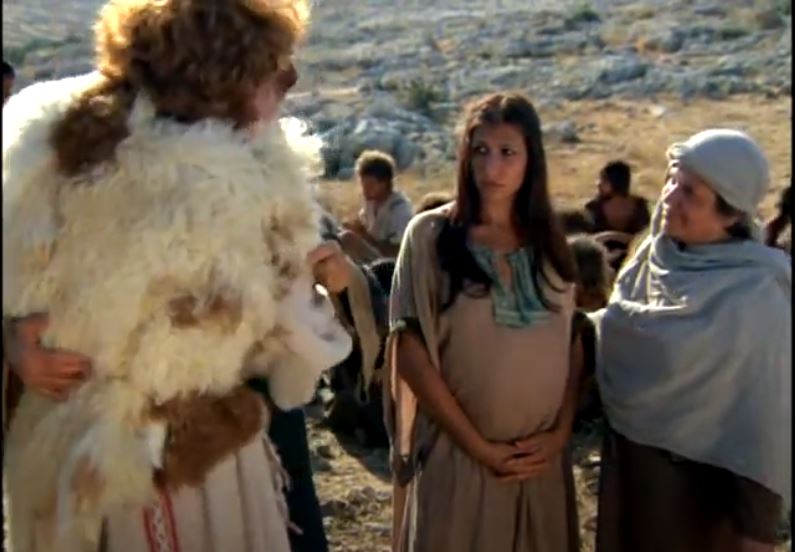
12. Why did Abraham, Isaac, and Jacob all want to marry relatives?
13. Why was Isaac promised great blessings (26:4-5) just because his dad had been so righteous? How does that square with our second Article of Faith?
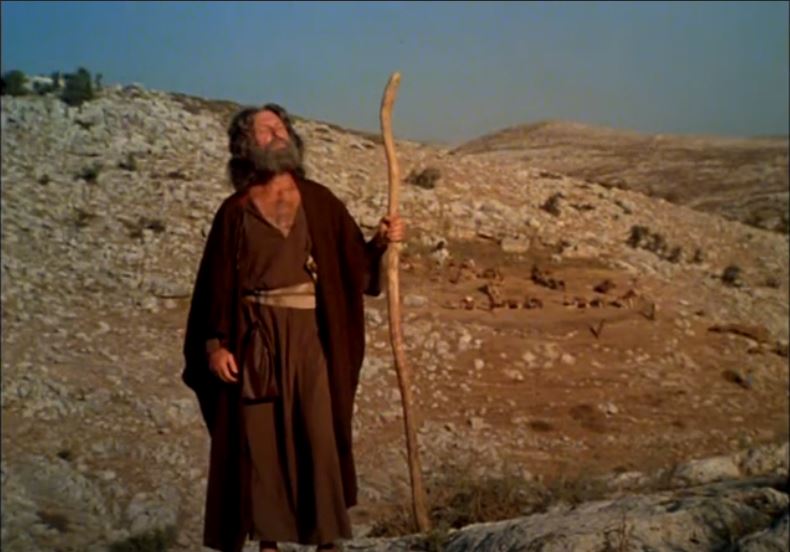
14. With which of the following statements do you most agree, and why?
a. Jacob was justified in deceiving his father as to his identity, since Isaac was a bit senile, Esau had already sold his birthright, and the Lord had decreed before Jacob’s and Esau’s birth that the younger son would rule over the older one.
b. Jacob’s deceit of his father was a low point in Jacob’s life, as it is “contrary to the order of heaven for a just man to deceive.” He should have trusted the Lord to bless him in his own due time rather than try to “steal” the blessing. It was poetic justice that Laban similarly deceived Jacob some years later by substituting Leah for Rachel on Jacob’s wedding night and that Jacob’s own sons later deceived him about Joseph’s disappearance.
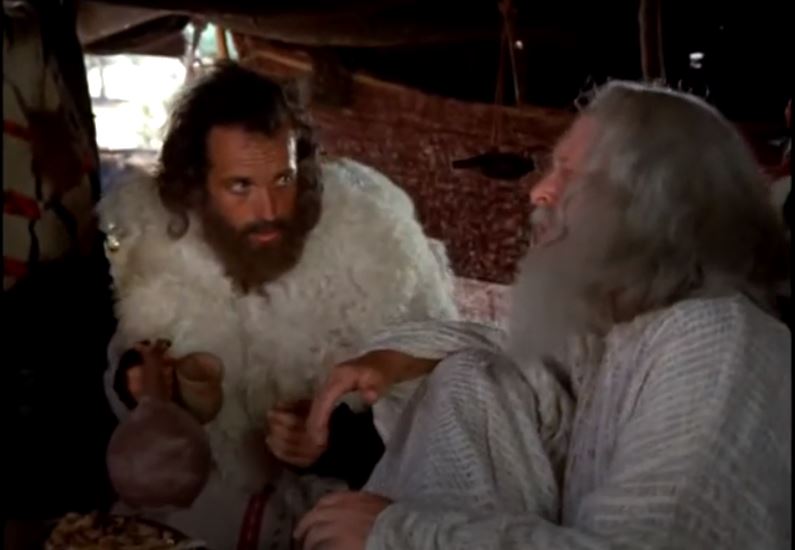
15. It probably makes the Genesis stories more interesting if we can remember how everyone is related. For example,
a. How was Abraham related to Sarah before they were married?
b. How was Isaac related to Rebekah before they were married?
c. How was Jacob related to Leah and Rachel, whom he will marry in next week’s reading?
Possible Answers to Points to Ponder in Genesis 24-27
1. How many interesting parallels can you find between the life of Isaac and that of his father Abraham?
- Both traveled to Gerar—the land of the Philistines—when famine struck. Due to famine, Isaac planned to travel to the same place that Abraham went—Egypt.
- The Lord appeared to both and promised the same temporal and eternal blessings to both.
- Both had a child later in life
- Each misrepresented a beautiful wife to Abimelech as his sister, though the Abimelech with whom Isaac dealt was probably the son or grandson of the one Abraham encountered. “Abimelech,” which means “my father is king,” may well have been a title for the Philistine monarchs, much as “pharaoh” was for Egyptian kings.
- Both initially had two sons, with the younger being more blessed than the older
- The two sons in each case had to be separated to protect the younger.
- Both were blessed with great material riches.
- Both came to need more space and water for their flocks, and both took measures to avoid conflict with their competitors.
2. What are the most important points to remember, in your opinion, from the story of the marriage of Isaac and Rebekah in Genesis 24?
For me they would be:
- Importance of temple marriage. It was important that Isaac not marry one of the neighbor girls but someone from his extended family, who had the same religious beliefs. It was important enough to send Abraham’s servant some 300 miles via camel to get a proper wife for Isaac. President Spencer W. Kimball said, “Any of you would go around the world for the sealing ordinance if you knew its importance, if you realized how great it is.”
- Availability and importance of personal revelation. (To Abraham, to his servant, and most probably to Rebekah.)
- Qualifications of a good wife.
- Hard work—Rebekah offered to water all ten of the camels of Abraham’s servant in addition to providing them with straw and food!
- Faith—Rebekah was willing to follow Abraham’s servant and marry Isaac, sight unseen.
- It was an extra bonus, but not a qualification per se, that Rebekah was the most beautiful woman the servant had ever seen.
- Isaac showed his spiritual sensitivity by taking time to go out into the field to meditate. (24:63)
- Love can grow in marriage. 24:67 indicates that Rebekah became Isaac’s wife and that he loved her, in that order!
3. Would it be okay for us to ask the Lord for a sign like Abraham’s servant did when he asked the Lord to let the future wife of Isaac be whatever young woman not only offered him water but offered to water his camels as well?
Presumably, we could ask. But we would do well not to count on it being the final answer unless the Lord gave us some special inspiration that it was so, as the Lord must have done to Abraham’s servant, even though it is not recorded.
4. What do you consider to be the most important principles in Genesis 25 that Moses would hope we would remember?
- Worthy women are as entitled to personal revelation as men. (Rebekah, not Isaac, was the more spiritually in tune with the Lord’s will concerning Jacob and Esau. Elder Bruce R. McConkie wrote: “May I now take our common ancestor, Rebekah, as a pattern for what her daughters in the Church today can do? … When Rebekah was troubled and needed divine guidance she herself took the matter up with the Lord, and He spoke to her in reply. The Lord gives revelation to women who pray to Him in faith.”)
- If we are patient and worthy, all promised blessings will eventually come. (Isaac waited 20 years for children.)
- If we don’t appreciate our blessings, we can lose them. (Esau despised his birthright and voluntarily relinquished it.)
5. Why would Rebekah have given her second son the name of “Jacob”? What did the name mean?
Jacob meant “supplanter.” Rebekah knew, even if Isaac didn’t yet, that Jacob, the second born, was to replace or “supplant” the firstborn as the covenant son.
6. Why does Moses insult Jacob in Genesis 25:27 by calling him a “plain” man?
No insult is intended. By following the footnote (which is always a good idea), we find that the term translated as “plain” in the King James Version in the original Hebrew meant “whole, complete, or perfect,” as well as “simple” and “plain.” Other translations in English include “quiet,” “peaceful,” “upright,” “mild,” “even-tempered,” and “civilized.”
7. Just what was the “birthright” which Esau sold to Jacob, and what is the easiest way to find out?
By going to the Bible Dictionary, looking under “birthright,” and then following the link provided to “firstborn,” we find that the birthright included:
- A double portion of his father’s possessions
- Generally, a land inheritance
- Family leadership, including presiding authority and the responsibility to care for the mother and sisters
However, there is some evidence that the “birthright” which Esau so easily forfeited included the same covenant blessings which Isaac later confirmed upon Jacob. Some Jewish traditions indicate it included the garment of skins which God made for Adam in the garden of Eden and which Ham may have stolen from his father, Noah. If so, it would make more sense why Esau’s “despising” his birthright was considered a serious sign of unfaithfulness rather than an optional foregoing of merely temporal opportunities.
8. Wasn’t it unfair of Jacob to refuse to feed his brother, who was on the verge of starving to death, until he had extorted his birthright from him?
Esau is clearly exaggerating the extent of his hunger and showing how little he valued his birthright. The scriptural commentary adds, “Thus Esau despised his birthright.” Jacob, who did value it, was completely within his rights in bargaining with his brother.
9. What would be a modern equivalent of Esau’s selling his birthright for a mess of pottage?
Trading the blessings of the temple for momentary pleasure, preferring alcohol or drugs over the priesthood, etc.
10. What are the most important lessons we get from Genesis 26:
- It is better to dig another well than fight over one that one’s adversary has taken.
- The Abrahamic covenant was renewed with Isaac.
- Marrying out of the faith will bring sorrow.
11. Why were Isaac and Rebekah so sorrowful when Esau married? (Genesis 26:34-35.)
He was marrying pagan girls who would not share his faith or values or raise their children to believe in them. President Spencer W. Kimball stated: “Religious differences are fundamental differences. Religious differences imply wider areas of conflict. Church loyalties and family loyalties clash. Children’s lives are often frustrated. The nonmember may be equally brilliant, well trained, and attractive, and he or she may have the most pleasing personality, but without a common faith, trouble lies ahead for the marriage. There are some exceptions but the rule is … harsh and unhappy.”
12. Why did Abraham, Isaac, and Jacob all want to marry relatives?
Virtually all the non-relatives were pagans. It was as important for our ancient ancestors to marry within the covenant as it is for us today to do so, through temple marriage.
13. Why was Isaac promised great blessings (26:4-5) just because his dad had been so righteous? How does that square with our second Article of Faith?
There is more to the story. Isaac wasn’t blessed only because of his father’s righteousness but because of his own. He had shown his faith and obedience when Abraham had been asked to sacrifice him. 26:4-5 might better be understood as the Lord’s telling Isaac that because of his righteousness he had been selected as the vehicle through whom the Abrahamic covenant would be passed down to future generations. Had Isaac not qualified, the Lord would have raised up another son or grandson of Abraham through whom the promises could be fulfilled.
14. With which of the following statements do you most agree, and why?
a. Jacob was justified in deceiving his father as to his identity, since Isaac was a bit senile, Esau had already sold his birthright, and the Lord had decreed before Jacob’s and Esau’s birth that the younger son would rule over the older one.
b. Jacob’s deceit of his father was a low point in Jacob’s life, as it is “contrary to the order of heaven for a just man to deceive.” He should have trusted the Lord to bless him in his own due time rather than try to “steal” the blessing. It was poetic justice that Laban similarly deceived Jacob some years later by substituting Leah for Rachel on Jacob’s wedding night and that Jacob’s own sons later deceived him about Joseph’s disappearance.
Your choice. I would probably opt for “b.” Jacob deserved the blessing more than Esau and had been so foreordained, but he and his mother do seem to have taken matters into their own hands prematurely, unless there is something missing from the story. The Old Testament is a record of people who became great, not who were great from birth, in most cases. However, Isaac could surely have revoked the blessing given under false pretenses, had he so chosen. His statement, “Yea, and he shall be blessed,” seems to affirm that even Isaac finally realized the propriety of Jacob’s receiving the blessing instead of his brother.
15. It probably makes the Genesis stories more interesting if we can remember how everyone is related. For example,
a. How was Abraham related to Sarah before they were married?
b. How was Isaac related to Rebekah before they were married?
c. How was Jacob related to Leah and Rachel, whom he will marry in next week’s reading?
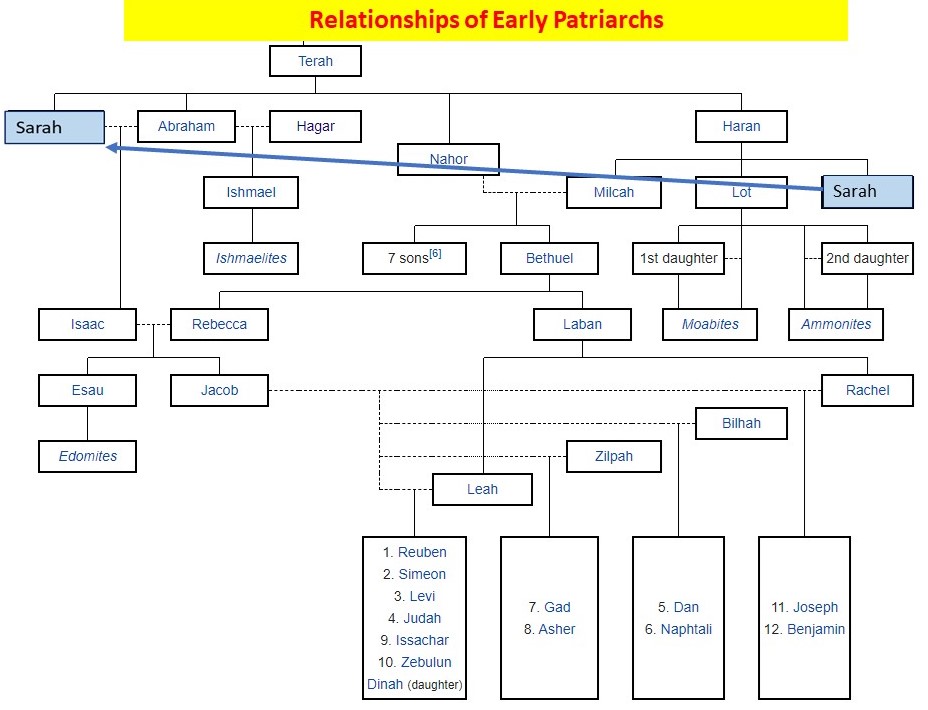
a. Sarah was evidently Abraham’s niece.
b. Isaac was a first cousin once removed of Rebekah.
c. Rachel and Leah were first cousins of Jacob.

These are so good! Thank you for putting in the time to make them